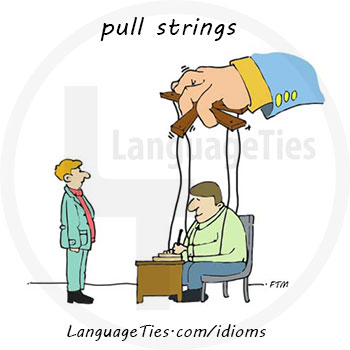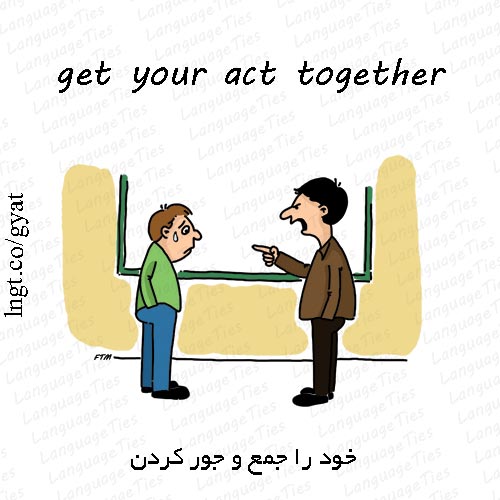worthless
worth·less [worthless worthlessness] [ˈwɜːθləs] [ˈwɜːrθləs] adjective
1. having no practical or financial value
• Critics say his paintings are worthless.
Opp: valuable
2. (of a person) having no good qualities or useful skills
• a worthless individual
• Constant rejections made him feel worthless.
Derived Word: worthlessness
Example Bank:
• The diseased plants are worthless to the farmer.
• The opinion polls were dismissed as worthless.
• These contradictions made his evidence worthless.
• Constant rejections made her feel worthless.
• He's just a worthless individual.
• Shares in the company are now almost worthless.
worth
worth [worth worths] adjective, noun [wɜːθ] [wɜːrθ]
adjective not before noun (used like a preposition, followed by a noun, pronoun or number, or by the -ing form of a verb)
1. ~ sth having a value in money, etc
• Our house is worth about £100 000.
• How much is this painting worth?
• to be worth a bomb/packet/fortune (= a lot of money)
• It isn't worth much.
• If you answer this question correctly, it's worth five points.
2. used to recommend the action mentioned because you think it may be useful, enjoyable, etc.
• ~ sth The museum is certainly worth a visit.
• ~ doing sth This idea is well worth considering.
• It's worth making an appointment before you go.
3. ~ sth/doing sth important, good or enjoyable enough to make sb feel satisfied, especially when difficulty or effort is involved
• Was it worth the effort?
• The new house really wasn't worth all the expense involved.
• The job involves a lot of hard work but it's worth it.
• The trip was expensive but it was worth every penny.
see also worthwhile
4. ~ sth (of a person) having money and possessions of a particular value
• He's worth £10 million.
more at a bird in the hand is worth two in the bush at bird, more than your job's worth (to do sth) at job
Word Origin:
Old English w(e)orth (adjective and noun), of Germanic origin; related to Dutch waard and German wert.
Synonyms:
price
cost • value • expense • worth
These words all refer to the amount of money that you have to pay for sth.
price • the amount of money that you have to pay for an item or service: ▪ house prices ◊ ▪ How much are these? They don't have a price on them. ◊ ▪ I can't afford it ▪ at that price ▪.
cost • the amount of money that you need in order to buy, make or do sth: ▪ A new computer system has been installed at a cost of £80 000.
value • how much sth is worth in money or other goods for which it can be exchanged: ▪ The winner will receive a prize ▪ to the value of ▪ £1 000.
Especially in British English, value can also mean how much sth is worth compared with its price: ▪ This restaurant is excellent value ▪ (= is worth the money it costs) ▪.
price, cost or value?
The price is what sb asks you to pay for an item or service: ▪ to ask/charge a high price ◊ to ask/charge a high cost/value. Obtaining or achieving sth may have a cost; the value of sth is how much other people would be willing to pay for it: ▪ house prices ◊ ▪ the cost of moving house ◊ ▪ The house now has a market value of one million pounds.
expense • the money that you spend on sth; sth that makes you spend money: ▪ The garden was transformed ▪ at great expense ▪. ◊ ▪ Running a car is a big expense.
worth • the financial value of sb/sth: ▪ He has a personal net worth of $10 million.
Worth is more often used to mean the practical or moral value of sth.
the high price/cost/value
the real/true price/cost/value/worth
to put/set a price/value on sth
to increase/reduce the price/cost/value/expense
to raise/double/lower the price/cost/value
to cut the price/cost
Example Bank:
• It's so unimportant it's hardly worth mentioning.
• Most of the candidates were not considered worth interviewing.
• This book is well worth reading.
• This order is potentially worth millions of pounds to the company.
• It isn't worth much.
• Our house is worth about $300 000.
• to be worth a bomb/packet/fortune
Idioms: for all it is worth ▪ for what it's worth ▪ not worth the candle ▪ not worth the paper it's written on ▪ worth its salt ▪ worth its weight in gold ▪ worth somebody's while
noun uncountable
1. ten dollars', £40, etc. ~ of sth an amount of sth that has the value mentioned
• The winner will receive ten pounds' worth of books.
• a dollar's worth of change
2. a week's, month's, etc. ~ of sth an amount of sth that lasts a week, etc.
3. the financial, practical or moral value of sb/sth
• Their contribution was of great worth.
• The activities help children to develop a sense of their own worth.
• A good interview enables candidates to prove their worth (= show how good they are).
• a personal net worth of $10 million
see put in your two cents' worth at cent n., get your money's worth at money
Word Origin:
Old English w(e)orth (adjective and noun), of Germanic origin; related to Dutch waard and German wert.
Example Bank:
• Asking for advice from people affirms their personal worth.
• Can you give me some estimate of its worth?
• Cutting out the debts will increase your net worth.
• He never contributed anything of worth to the conversation.
• I only found out its real worth when I tried to buy another one.
• She has no sense of her own worth.
• She knows her own worth.
• Some experts doubt the economic worth of the project.
• Study has an intrinsic worth, as well as helping you achieve your goals.
• The emergency lighting has proved its worth this year.
• The insurance company agreed to pay the car's current market worth.
• They are looking for a new sales manager of proven worth.
• They don't appreciate her at her real worth.
• This necklace isn't worth anything in money terms, but its worth to me is incalculable.
• A good job interview should help candidates prove their worth.
• He has a personal net worth of $10 million.
• The children here quickly gain a sense of their own worth.




